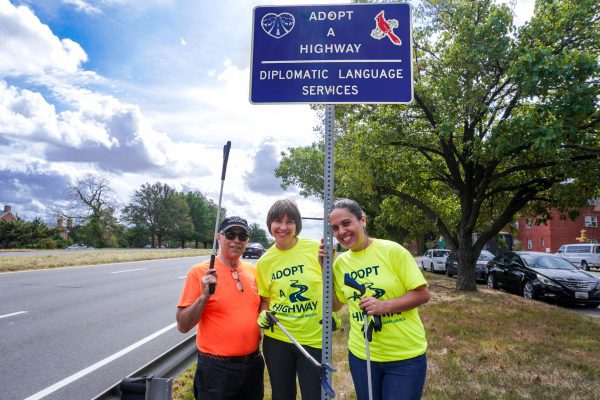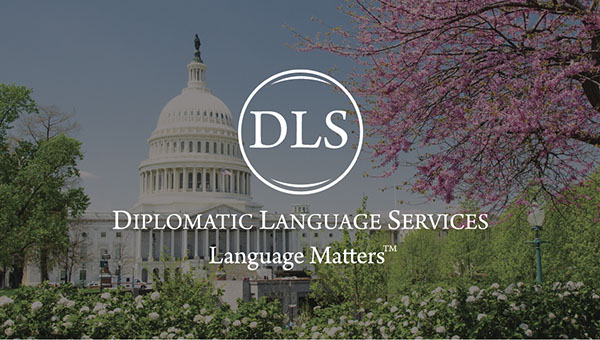Fancy a trip to Westeros? Do you see yourself standing in the shadow of Casterly Rock? Or would you rather avoid Westeros completely and head straight for the more exotic ports, plains, and deserts of Essos? Regardless of your desired destination, you will want to have a good understanding of the linguistic requirements. We won’t ask where you’re planning to go, or why, but we hope the primer below will help you know what to expect when faced with the Game of Thrones languages.
Seven Kingdoms of Westeros
The two languages most strongly associated with the Seven Kingdoms of Westeros are as follows.
The Common Tongue [of the Andals]
This is likely what you’ll most need while visiting any of the Seven Kingdoms and even a little beyond if you intend to travel by ship and visit any of the larger ports. There are many regional variations and accents of the Common Tongue, but most can be mutually understood, so long as you’ve got a functional grasp on the language in general. As its name suggests, it was introduced to the Seven Kingdoms by the Andals some 6,000 years ago.
The Old Tongue – This was spoken by the First Men, who came before the Andals, but today the language is hardly known by anyone outside of giants and a few wildlings. If you find yourself needing, or indeed even hearing the Old Tongue, you may need to consider your position carefully and proceed with caution.
Essos
Essos, by contrast, has quite a few more languages to keep track of. Some of the more noteworthy include the following:
Valyrian
This will get you far, though beware of its many variations. High Valyrian was the language of the Valyrian Freehold and was commonly (if forcibly) spoken widely throughout Essos until Valyria fell. It was said to be the most perfect language for poetry ever created. That may be, but it certainly hasn’t benefited the original languages of Essos much. Today, Valyrian survives as a collection of bastardized dialects, sometimes collectively known as Low Valyrian. These dialects are so diverse that many are close to becoming their own languages. That could make inter-regional communication challenging. Consider hiring a local guide.
Dothraki
Thinking of undertaking a pilgrimage to visit the Dothraki? Having handle on the basics of the Dothraki language might not save you from stumbling into a catastrophic cultural faux pas, but it will at least help you avoid a few. Dothraki’s harsh, brusque sounds mirror the unforgiving land these nomads occupy, but it is not without its own type of poetry.
Lhazar
If you go in search of the Dothraki, but miss your mark, you may find yourself crossing paths with the Lhazareen. The Lhazareen are mostly shepherds and do not appear to be particularly aggressive. Their language has a singsong quality, reflecting their comparatively peaceful lifestyle. Lhazareen was never part of the Valyrian Freehold, and so its own language has remained free to develop on its own.
Asshai’i
You may be best off avoiding the city of Asshai and its mysterious people altogether. Though that shouldn’t be overly difficult to manage. The city is so far-flung that you’re unlikely to ever land there by anything other than strong-willed intent. or force. Very little is known about the citizens of Asshai and their language (Asshai’i) is rarely heard anywhere else. It seems as though it’s often used in the casting of powerful spells, which isn’t terribly surprising. The city is rife with all manner of spellsingers and wizards and lies beneath an ominous blanket of darkness. The buildings themselves are made of black stone that seems to absorb and trap all light, and the vast majority of them stand eerily empty. If you must enter the port of Asshai, we recommend you stay close to the docks, conduct your business quickly, and then continue on your way.
Qarth
Traveling to Qarth is a tantalizing prospect. The walled port city is a bejeweled oasis amidst the sweltering dunes of the Red Waste and is a fine place to visit. Provided you’re able to gain entry in the first place. Assuming you are successful in your endeavor, you’ll find the people of Qarth to be colorful and proud. Their language, however, is generally difficult for outsiders to master. You may be better off sticking to the Common Tongue, which you will find most merchants can speak. Please take our advice, however, and consider approaching the city by ship, rather than attempting it by land. This will keep you from finding yourself stranded in the desert, should you be denied entry.
It’s also important to note that the Summer Tongue, spoken in the Summer Isles, and the Trade Talk of the wharves, ports, and sailor’s taverns are also relevant and might be worth brushing up on, should your travels bring you into contact with either group. Having a functional grasp of Trade Talk, in particular, can be beneficial in helping you negotiate with sailors for passage, or recognize when you’re being rudely insulted, as the case may be.
Non-Human Languages
It may be worth noting that there are a few non-languages present in the Known World as well. Any attempt to learn either of them is futile, but you ought to be aware of their existence. The better known of these is the language of the Others (You may know them as White Walkers) and also that of the children of the forest. You are very unlikely to ever hear the True Tongue of the children of the forest (no one has seen them for hundreds of years), but should you ever encounter a creature uttering sounds like the cracking of ice, run. Or, perhaps, pray to your preferred deity. You’ve wandered too far.
Regardless of where your travels take you, it is important to remember that knowledge of a region’s language is only half of the equation. You also need to take time to learn some basics about the cultures you’ll be interacting with. Take the time to allow a native-fluent local to train you before you go, and you’ll save yourself a great deal of heartache.
Finding the right guide can be challenging, however, and may take a little more time than you have, if your reason for travel is urgent. Finding a native speaker of any of these languages outside of Westeros or Essos can also be nigh impossible, which means you may need to wait until you’ve reached a port to begin your search. That doesn’t account for any of your interactions between our world, and your destination, or for the communication skills you’ll need once there to hopefully keep yourself out of trouble. We’ve compiled a few basic phrases in Valyrian and Dothraki to get you started. Use them wisely!
Speaking Valyrian
The phrases below are in High Valyrian. Although it isn’t as commonly heard on the streets, the documentation available to us at this time supports High Valyrian more than it does the other dialects. They should, for the most part, still work to get you by. Locals will likely hear your accent and understand that you are an outsider, but take care to ensure you aren’t behaving or speaking in an unintentionally arrogant tone.
Rytsas! = Hi!/Hello!/Greetings!
Geros ilas. = Goodbye/Farewell.
Kostilus. = Please.
Kirimvose. = Thank you. à Kirimvose daor. = No thank you. à Kirimvose, sȳz iksan. = Thanks, I’m good.
Daor. = No.
Kessa./Issa. = Yes.
>Name< ñuha brōzi issa. OR Ñuha brōzi >Name< issa. = My name is…
Sȳz issa rhaenagon avy! = It’s nice to meet you!
Quptenkos Ēngoso ȳdrassis? = Do you speak the Common Tongue? à Udrirzi Valyrio ȳdrā? = Do you speak Valyrian?
Kesīr drējī jiorilaks. = You are very welcome here.
Jemot kivio ñuhe tepan = I give you my word.
Prūmiā līrinoso rēbās! = Walk with a smile in your heart!
Merbun. = I’m hungry.
Zūgagon daor, ñuhys raqiros. = Don’t be afraid, my friend.
Ynot rēbagon. = Let me pass.
Rōvēgrī qringōntan. = I’ve erred enormously
Skorkydoso glaesā? = How are you?
Speaking Dothraki
The Dothraki place a lot of emphasis on respect. Do your best to be as respectful and formal as you can be without appearing subservient. (That could make you appear weak in their eyes, which won’t do you any favors.) Earning their respect takes time, but it may be worth it.
M’athchomaroon! = A simple greeting (more formal) à M’ath!/M’ach! = Hi!
Athchomar chomakaan! =A greeting said to non-Dothraki, directed at one person. (Literally ‘Respect to one that is respectful!’)
Aena shekhikhi! = Good morning! (Literally ‘Light of the morning!’)
Fonas chek! = Goodbye. (Literally ‘Hunt well!’ Said in parting.) à Hajas! = Goodbye. (Literally ‘Be strong’.)
Dothras chek. = Be cool. (Literally ‘Ride well.’ Said in parting.)
Hash yer dothrae chek asshekh? = How are you today? (Literally ‘Do you ride well today?’)
Anha dothrak chek asshekh. = I feel well today. (Literally ‘I ride well today.’)
Anha dothrak adakhataan. = I’m about to eat. (Literally ‘I ride to eating.’)
Anha dothrak adakhatoon. = I just ate. (Literally ‘I ride from eating.’)
Sek, k’athjilari. Yes, definitely. = (Literally ‘Yes, by rightness.’)
Vos. Vosecchi! = No. No way!
Yer chomoe anna. = You do honor to me.
San athchomari yeraan! = Thank you! (Literally ‘a lot of honor to you’.)
Hash yer asti k’athijilari? = Are you speaking truthfully?
Anha zalak asshekhqoyi vezhvena yeraan! = I wish you a happy birthday.
Other options:
Duolingo offers free courses for both Dothraki and High Valyrian. Their mobile app is perfect for those interminable ship voyages.
Take a look at the extensive resource pages of Tongues of Ice and Fire! There’s a wealth of information to be found there, including detailed linguistic breakdowns, virtual conversation tables, and lists of additional resources. They also have pages specifically for Valyrian and Dothraki! Dothras chek!
For more DLS, check out other blogs and visit us on Facebook, LinkedIn, Instagram, or Twitter!
By Carrie Carlson




